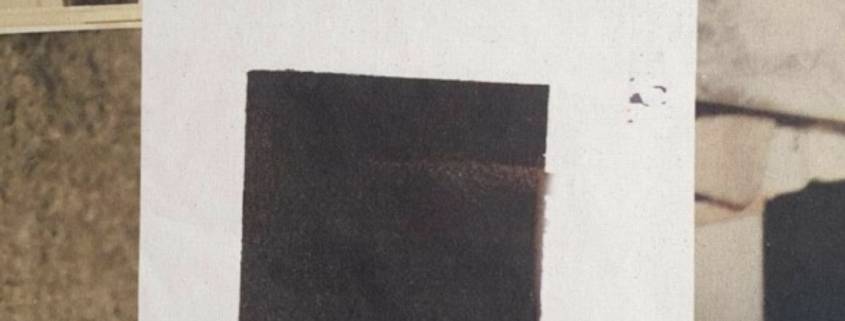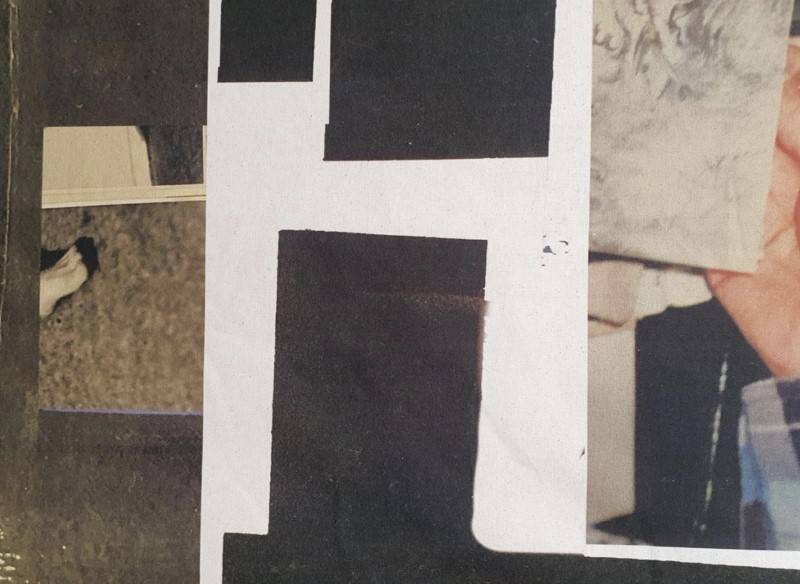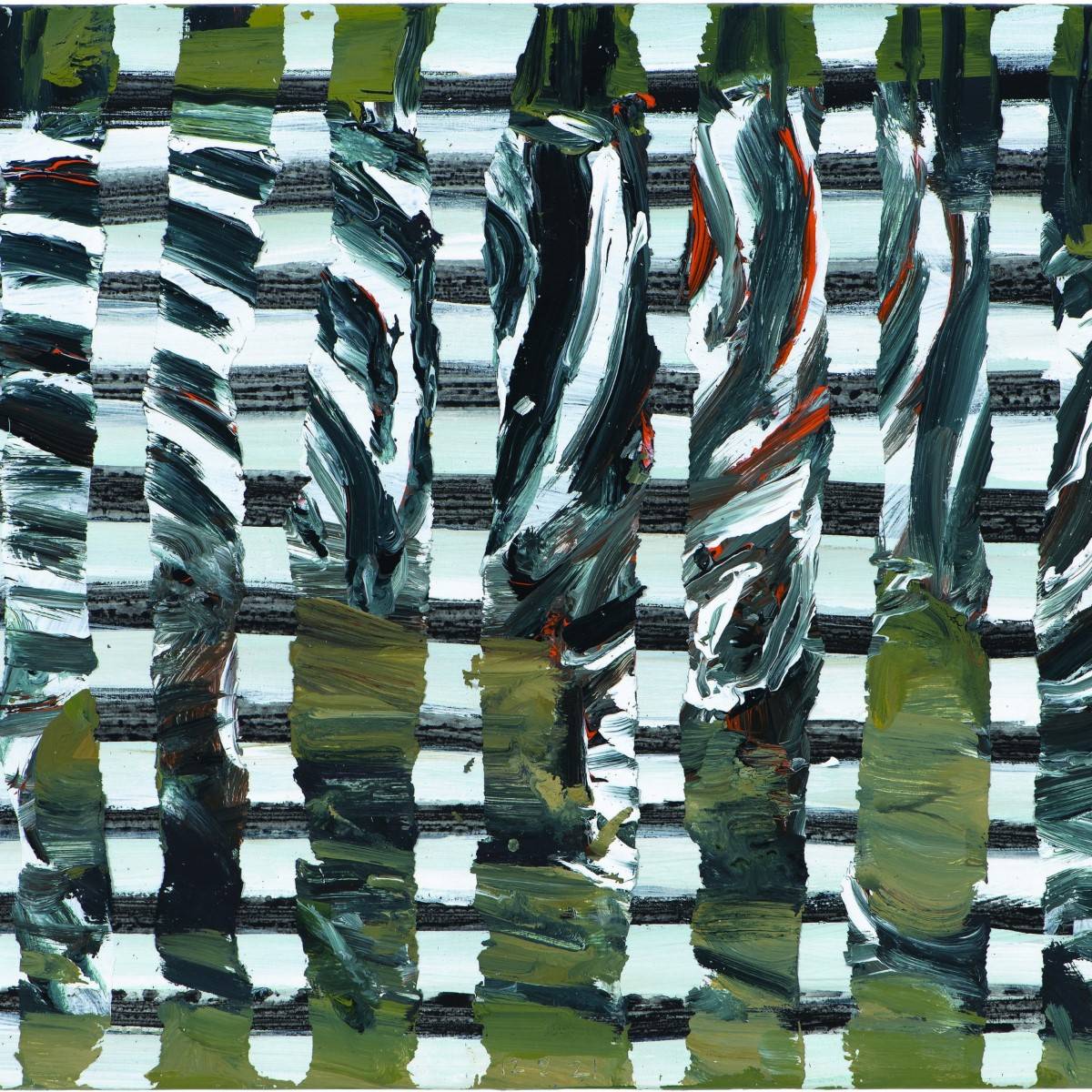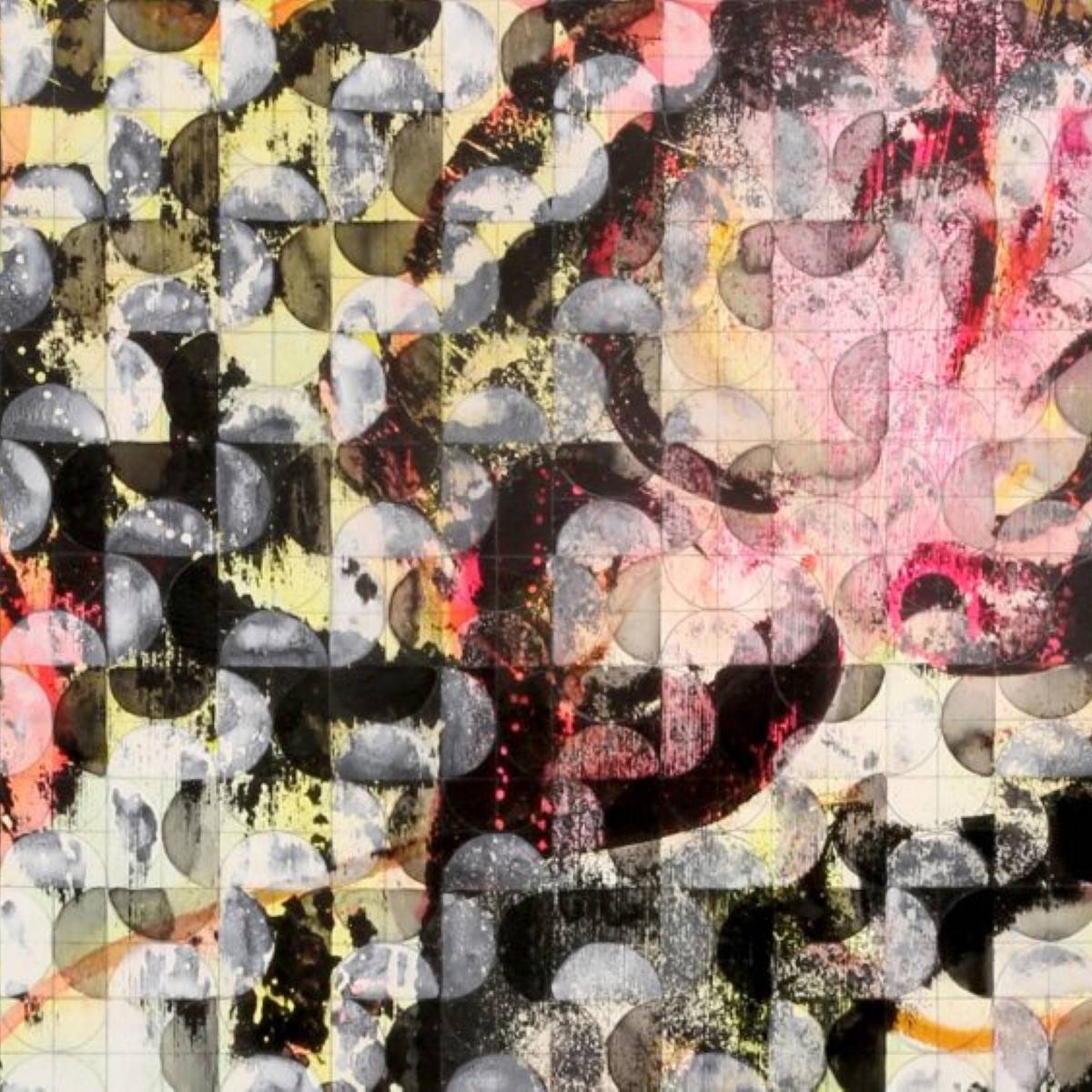

Jeremy Eaton, ‘Refrains #4’ (detail), 2023. Courtesy: the artist and La Trobe Art Institute, Bendigo.
Jeremy Eaton and Nicholas Smith have navigated the language of screens, concealment and exposure to develop their collaborative installation. Dressings makes visible historically hidden or codified themes, continuing these artists’ investigation of queer sensibilities in Australian modernism. Erotically charged domestic materials have been repurposed as artworks that cite censored archives, introducing experiences of queerness and domesticity to the recessed space of our large street frontage.
Different methods of screening and display have been used to conceal and frame elements of the installation. Burnished terracotta and painted automotive vinyl upholstery, for example, draw out the sensuality present in ordinary domestic materials. Smith has built disassembled artworks into wooden plinths, physically elevating terracotta vessels that now appear as naked torsos. Eaton’s digitally printed room dividers display cropped images from an artist’s archives that had been previously censored. Dressings subverts historical silencing and queer erasure through its open display, while also refusing access through elements that screen and conceal.



